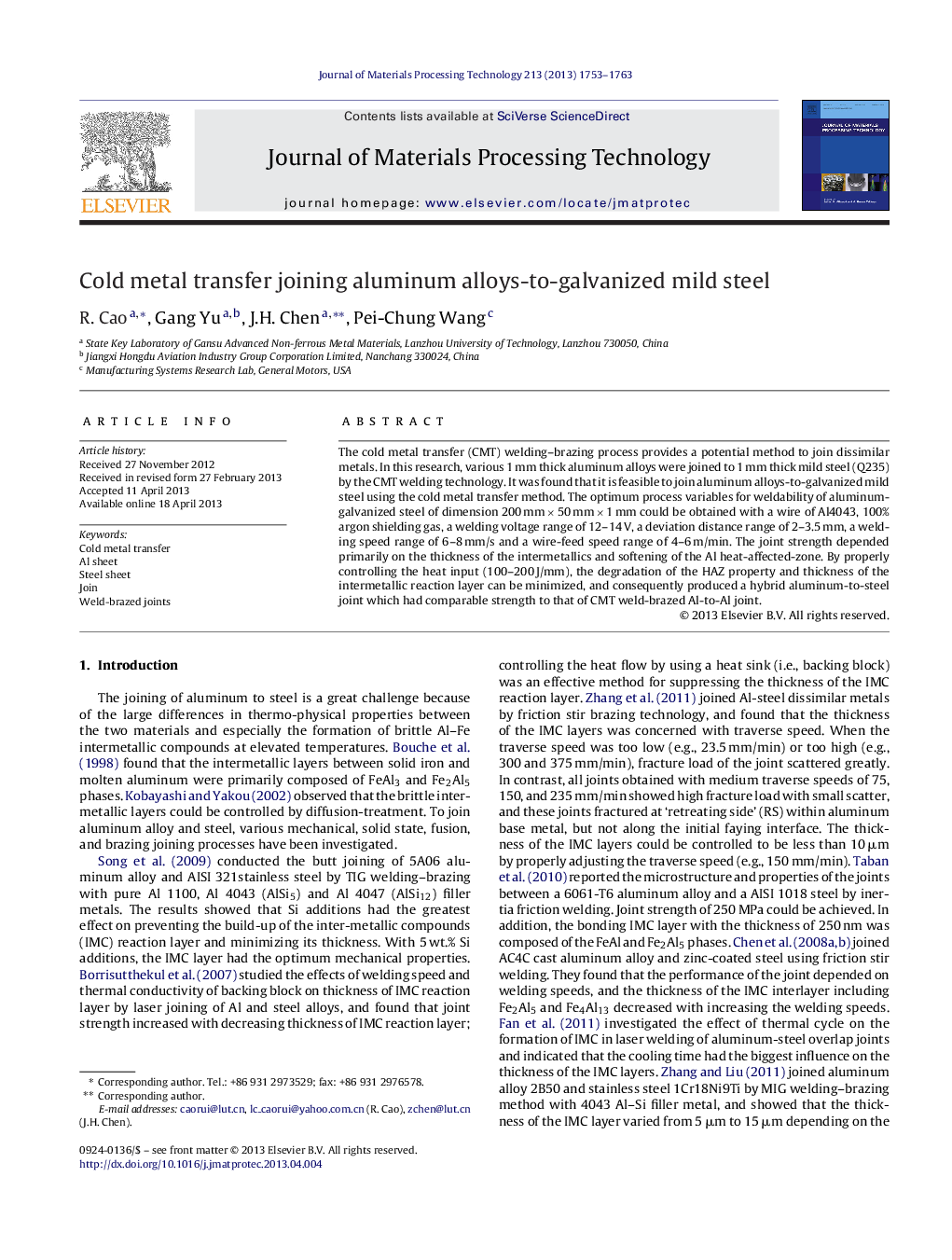| Article ID | Journal | Published Year | Pages | File Type |
|---|---|---|---|---|
| 10417635 | Journal of Materials Processing Technology | 2013 | 11 Pages |
Abstract
The cold metal transfer (CMT) welding-brazing process provides a potential method to join dissimilar metals. In this research, various 1 mm thick aluminum alloys were joined to 1 mm thick mild steel (Q235) by the CMT welding technology. It was found that it is feasible to join aluminum alloys-to-galvanized mild steel using the cold metal transfer method. The optimum process variables for weldability of aluminum-galvanized steel of dimension 200 mm Ã 50 mm Ã 1 mm could be obtained with a wire of Al4043, 100% argon shielding gas, a welding voltage range of 12-14 V, a deviation distance range of 2-3.5 mm, a welding speed range of 6-8 mm/s and a wire-feed speed range of 4-6 m/min. The joint strength depended primarily on the thickness of the intermetallics and softening of the Al heat-affected-zone. By properly controlling the heat input (100-200 J/mm), the degradation of the HAZ property and thickness of the intermetallic reaction layer can be minimized, and consequently produced a hybrid aluminum-to-steel joint which had comparable strength to that of CMT weld-brazed Al-to-Al joint.
Keywords
Related Topics
Physical Sciences and Engineering
Engineering
Industrial and Manufacturing Engineering
Authors
R. Cao, Gang Yu, J.H. Chen, Pei-Chung Wang,
